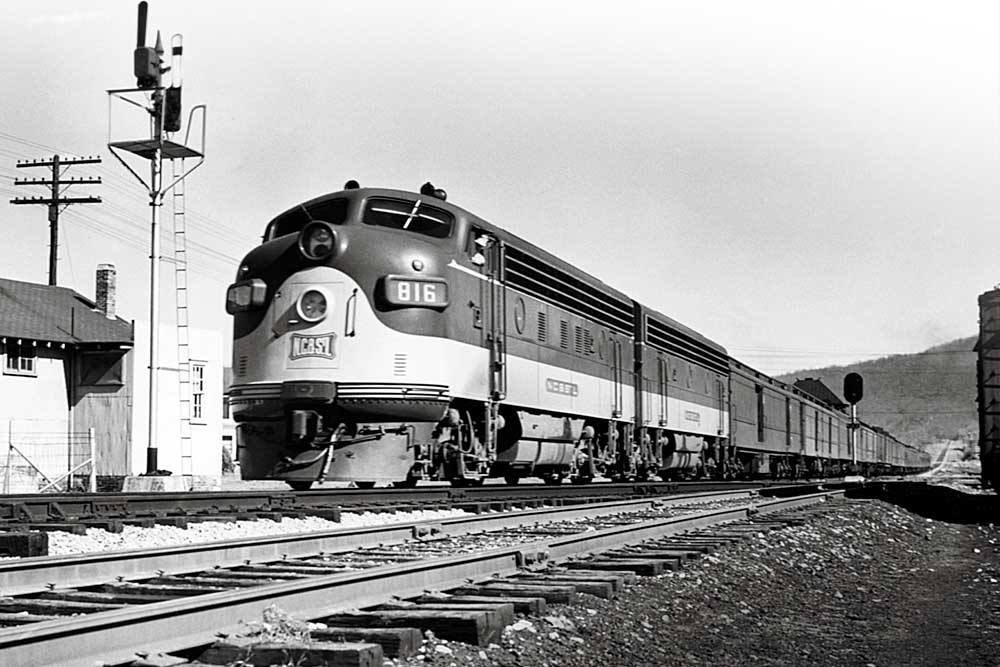
NC&StL locomotives were distinctive but disappeared all too soon. The Nashville, Chattanooga & St. Louis Railway had its share of unique items and was a pioneer. Historian Dain L. Schult says the “NC,” as it was known, was the only southern road to try a Camelback and a duplex; neither type worked out. It […]
Read More…

Facts and features Name: Owl Cove Lumber Co.Scale: On30 (1:48, 30″ narrow gauge)Size: 6 x 40 feetPrototype: freelancedLocale: Washington’s Northern CascadesEra: 1930sStyle: around-the-wallsMainline run: 26 feetMinimum radius: 18″Minimum turnout: No. 4Maximum grade: 6%Benchwork: L-girderHeight: 40″Roadbed: corkTrack: code 83 handlaid and flextrackScenery: hardshellBackdrop: hand-painted on wallsControl: NCE Digital Command Control Click the link to download a […]
Read More…
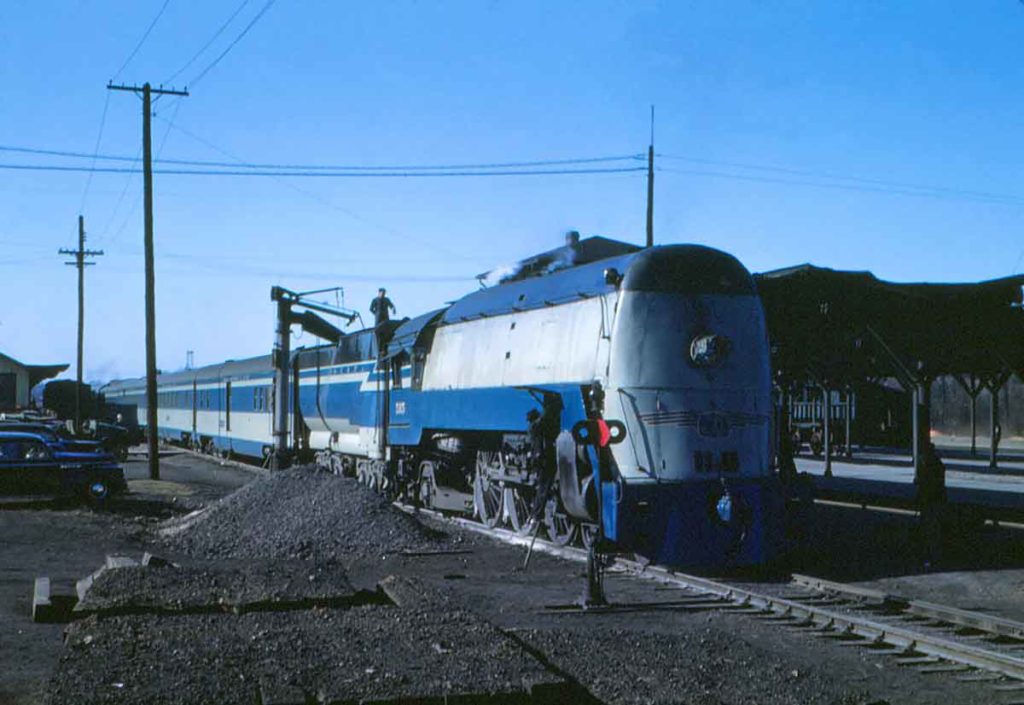
Please enjoy this photo gallery of Nashville, Chattanooga & St. Louis passenger trains, originally published online in November 2017. […]
Read More…
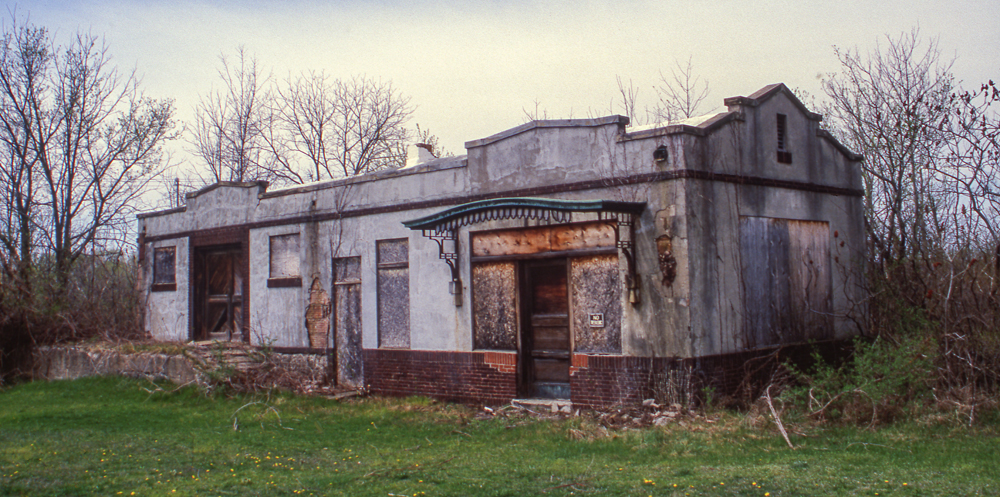
Harold W. Russell’s illustrations have been appearing in Model Railroader magazine since the mid-1960s. He has more than 150 bylines to his credit. In the July 2024 issue he shared plans for a masonry depot on the Lehigh Valley in Gorham, N.Y. Click on the link below to download Harold’s plans. Use this link to […]
Read More…
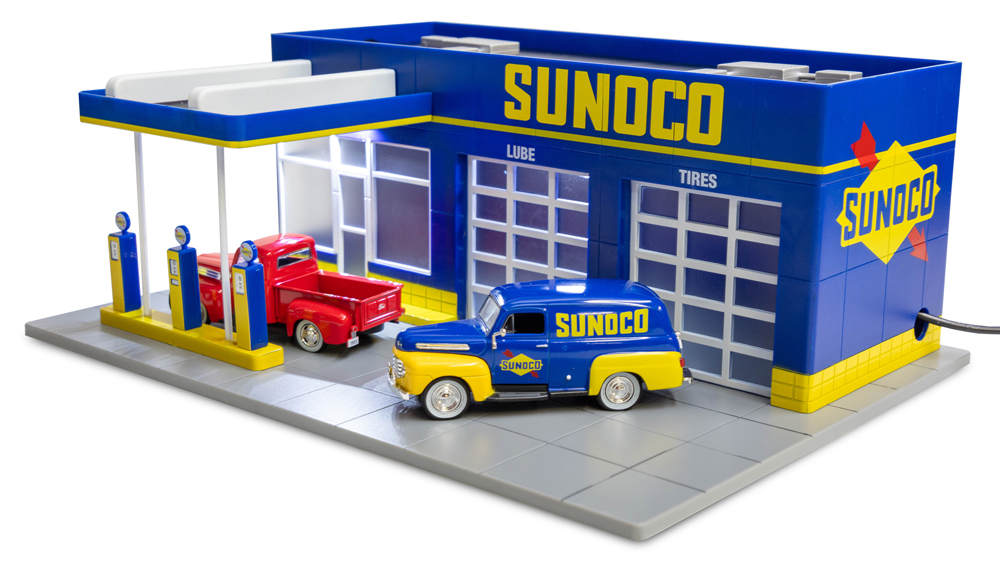
When I was a kid, we’d drive 3 ½ hours north to the Upper Peninsula of Michigan to visit my grandparents a couple of times per year. Of course, that long of a drive necessitated one or two pit stops. Most were at tiny gas stations in small towns. Menards Sunoco Station (275-9288) reminds me […]
Read More…
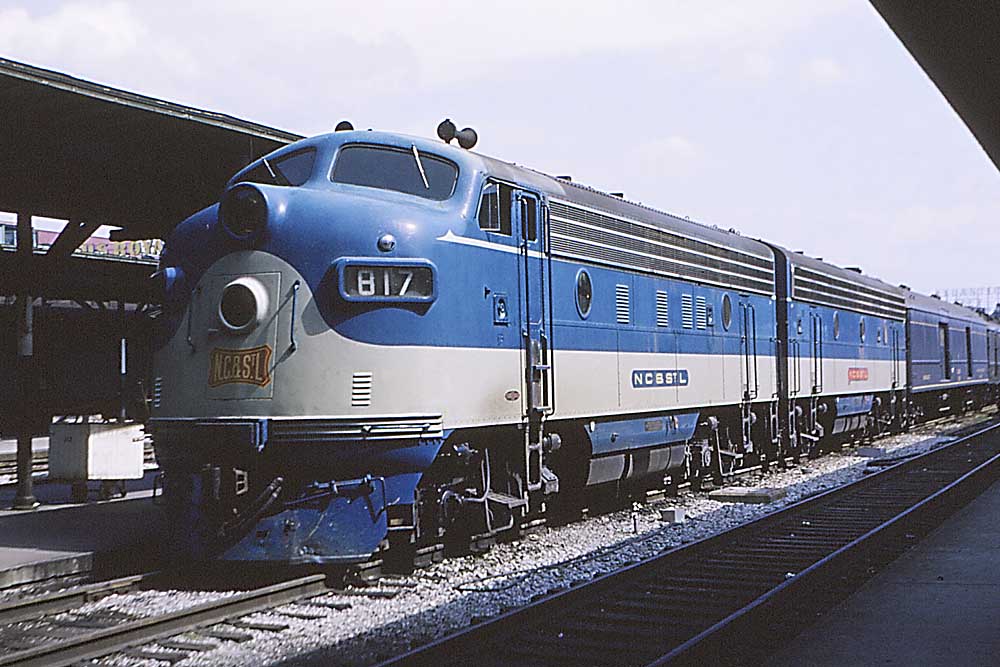
Although the Nashville, Chattanooga & St. Louis Railway employed several nicknames — “Dixie Line,” “Nashville Road,” and “Lookout Mountain Route” among them — to former employees and their families, it will always be “Grandpa’s Road.” James A. Skelton was one of those Grandpas. He was 14 in April 1862, and although the War Between the […]
Read More…
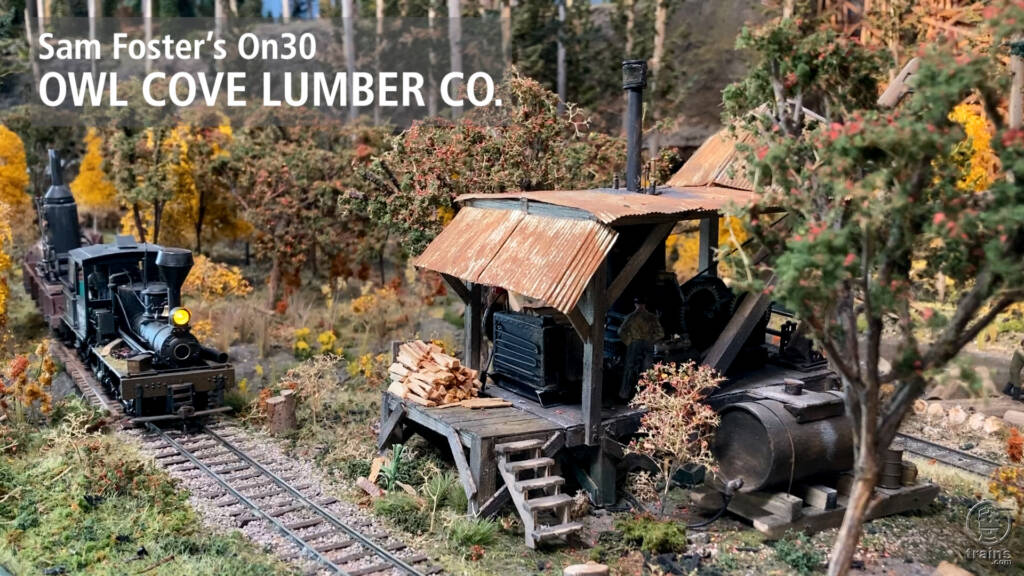
Enjoy a glimpse of 1930s-era logging operations on Sam Foster’s 6 x 40-foot On30 (1:48) scale model railroad. Tall timber and equally impressive railroad engineering abound on this freelanced, around-the-walls narrow gauge (30″) layout. You can read more about the layout in the August 2024 issue of Model Railroader magazine. […]
Read More…
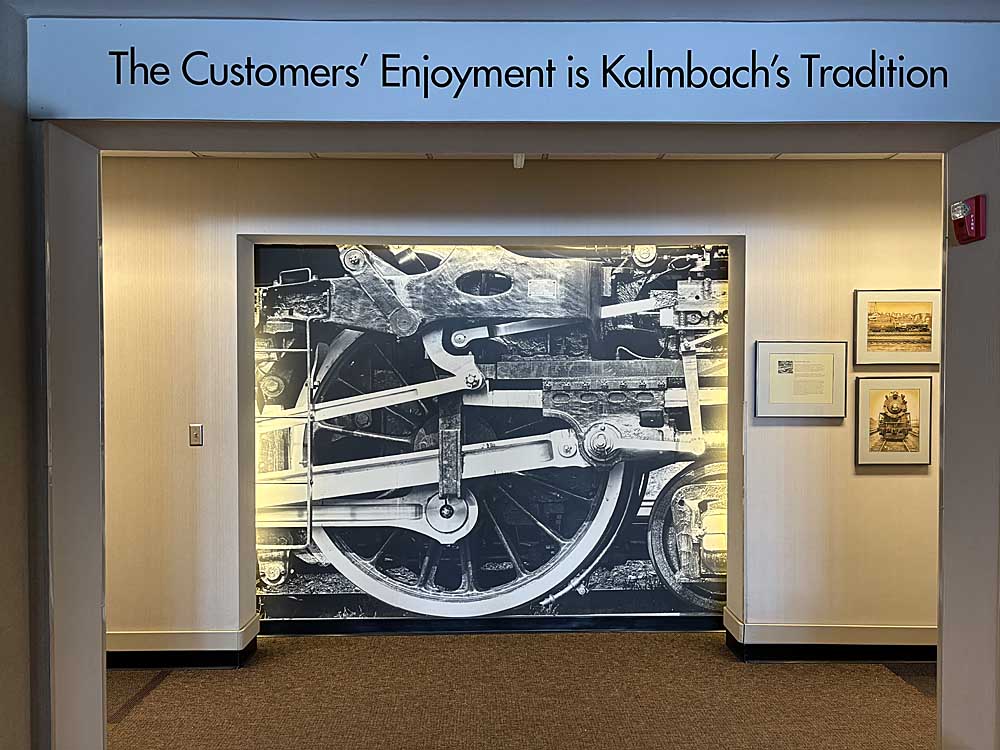
If you’re reading this, you’re undoubtedly aware of what’s been going on with Kalmbach Media, and how it has sold most of its magazine titles, including Trains and Classic Trains, to Chattanooga-based Firecrown Media. Concurrently, Kalmbach has decided to liquidate over the next couple of months, bringing an end to approximately 90 years of continuous […]
Read More…
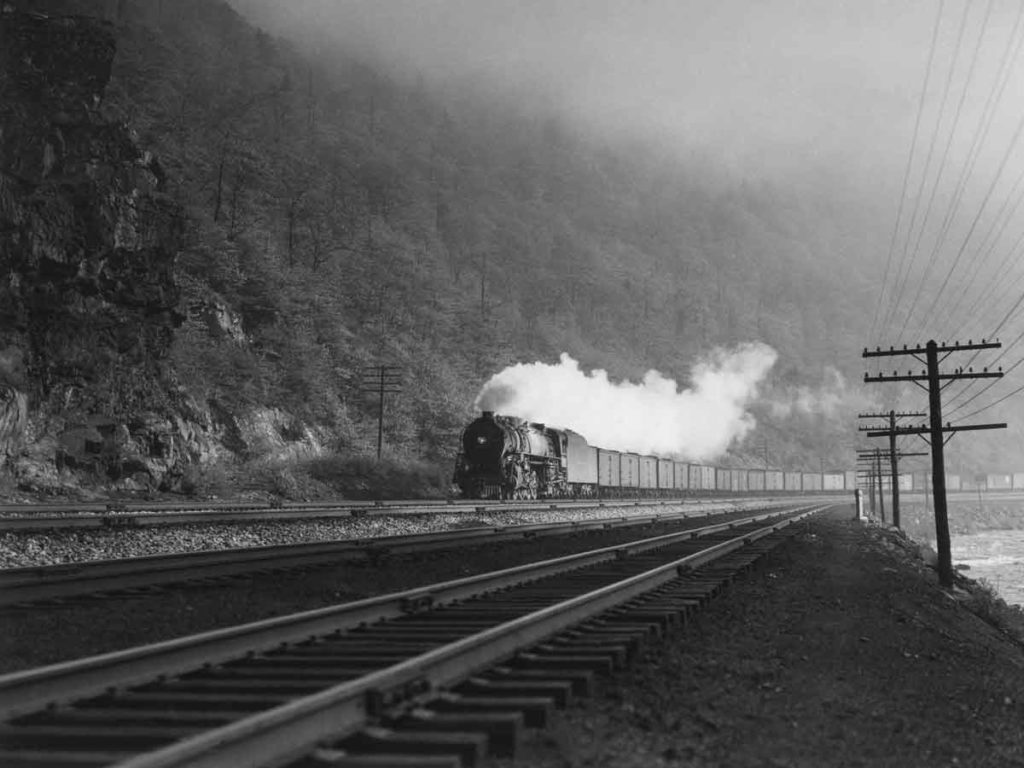
One of the Lehigh Valley’s 37 4-8-4s — which the road called the Wyoming type — swings around Hetcheltooth Curve with a westbound freight train beside the Lehigh River at Glen Onoko, Pa., in the late 1930s or early ’40s. Wayne Brumbaugh photo […]
Read More…
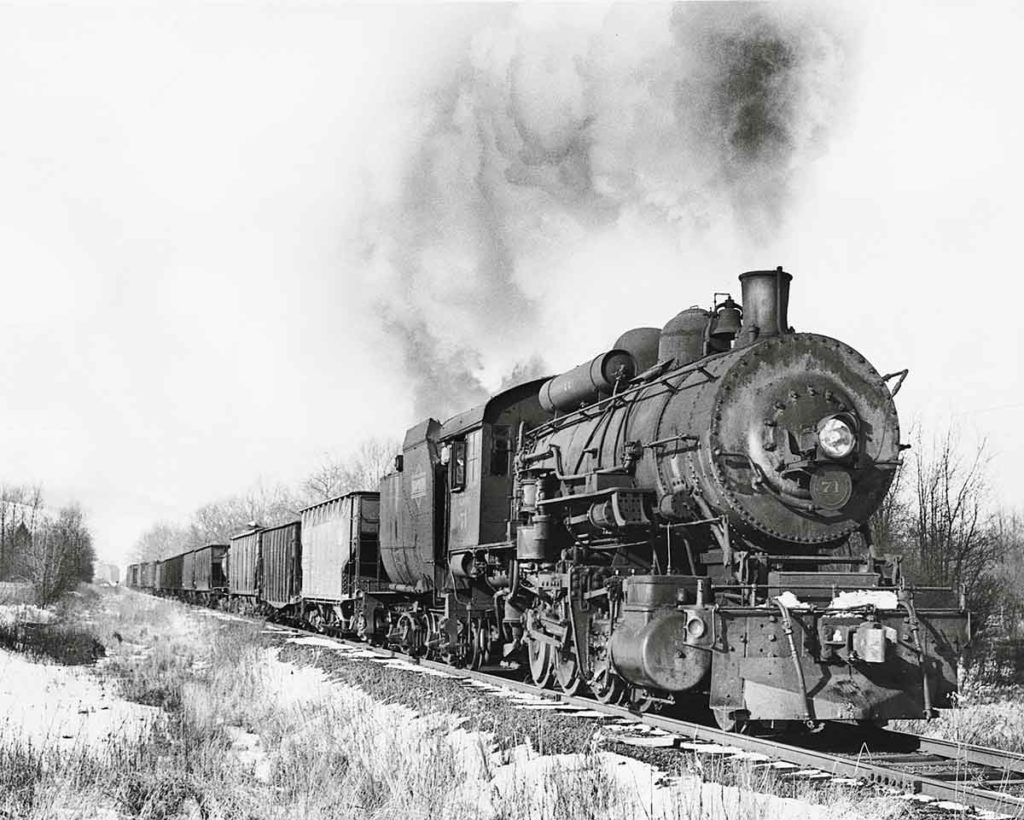
Incorporated in 1899, when the name of western Pennsylvania’s biggest city was spelled without an “h,” the Pittsburg, Shawmut & Northern ran from Brockway, Pa., to Wayland and Hornell, N.Y. Heavy construction debt forced it into receivership in 1905, and it was abandoned in 1947. Just before the end, 2-8-0 No. 71 leads a freight south […]
Read More…
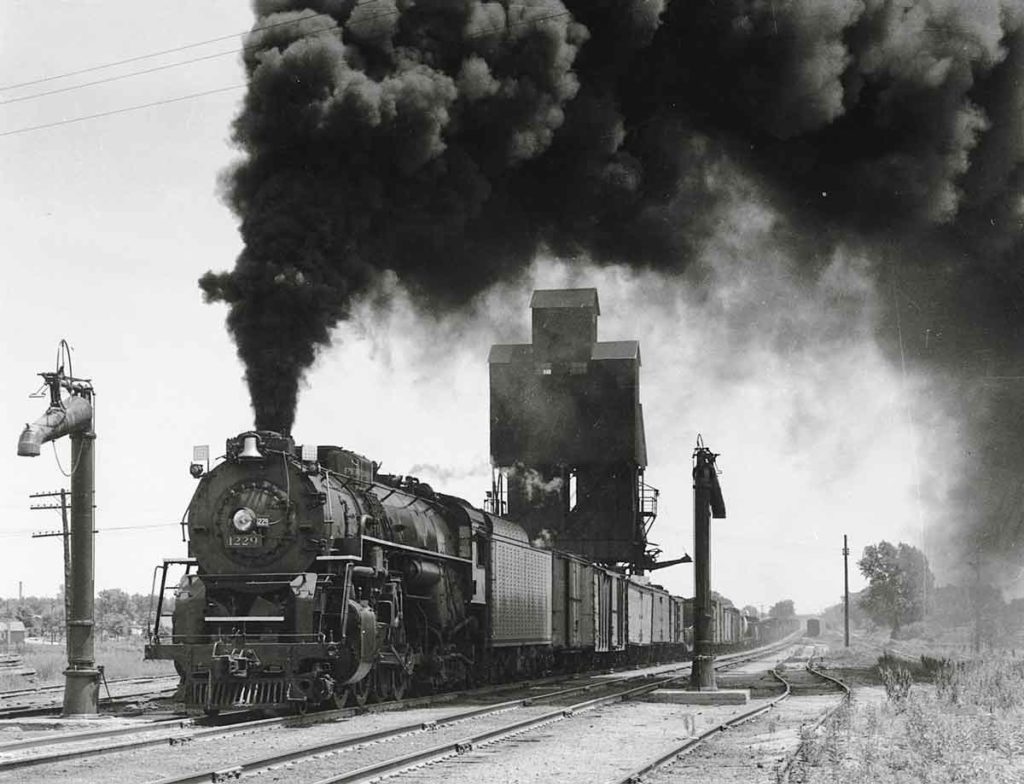
The Pere Marquette Railway’s 40 Berkshires, built by Lima during 1937–44, were the road’s last and best steam power. In this 1940s view, No. 1229 darkens the sky as it heads out of Plymouth, Mich., with a freight bound for Grand Rapids. Robert A. Hadley photo […]
Read More…
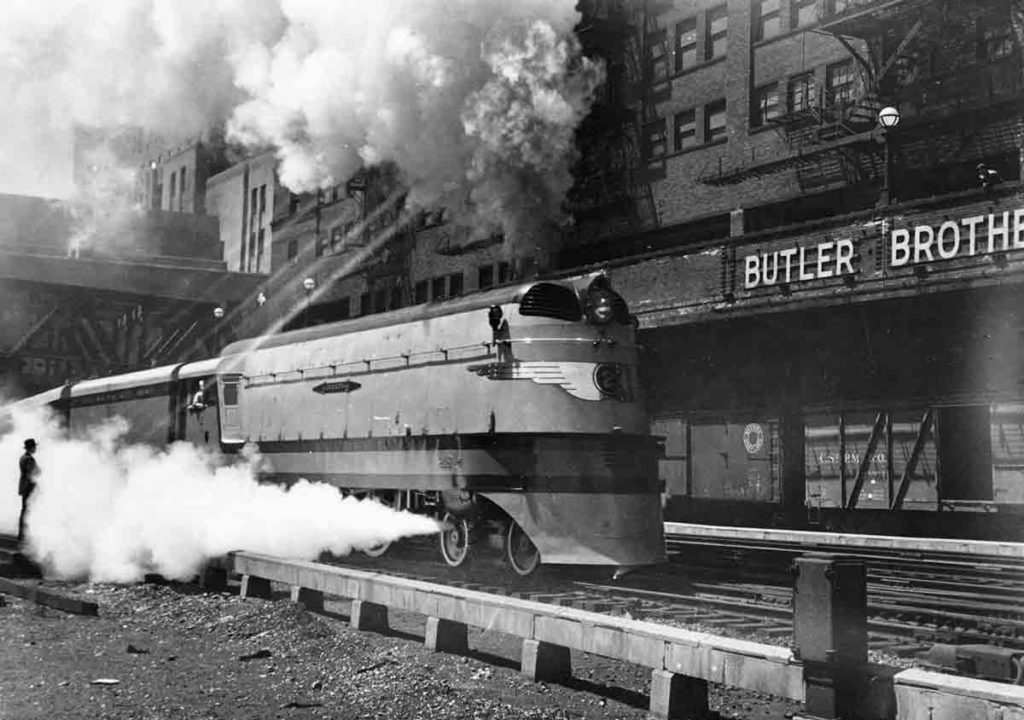
Steam from Milwaukee Road class A 4-4-2 No. 2’s cylinder cocks envelops a bystander just outside Chicago Union Station as the Hiawatha begins its dash to Minneapolis in 1935. Alexander Maxwell photo […]
Read More…












